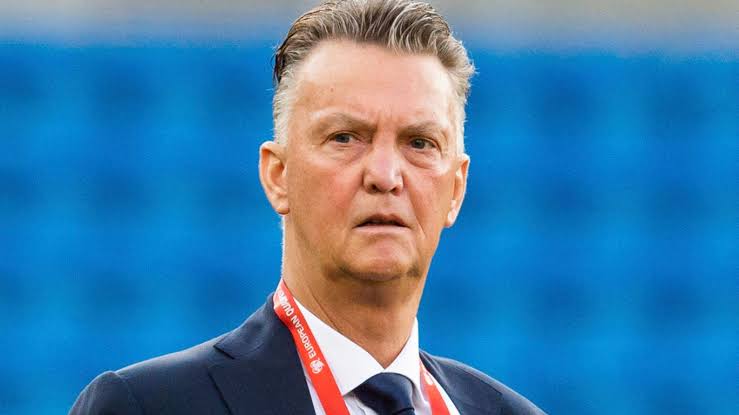Reappointing Louis van Gaal as manager of Manchester United could be seen as a step backward for the club, especially at a time when they are focused on building a new era with a young and energetic team. Although van Gaal has vast experience and tactical knowledge, his methods may not align with the future that Manchester United envisions. The club is looking for a leader who can nurture the current crop of dynamic players and guide them into a new era of success. Van Gaal’s managerial approach, which may have been effective in the past, might not be the ideal fit for this vision.
One of the primary concerns regarding Van Gaal’s return is the potential controversy it might create. While some supporters might welcome the return of a familiar face who has had success at the highest levels, others could view his reappointment as a regression to past strategies that no longer resonate with the modern game. This divide among fans could pose a challenge for the club, as they strive to move forward rather than looking backward. Before making such a crucial decision, Manchester United’s leadership must carefully weigh the pros and cons, ensuring that the club’s trajectory continues upward rather than stagnating under a familiar, yet possibly outdated, approach.
Despite these concerns, van Gaal’s name remains in the conversation when discussing potential candidates for the Manchester United job. His previous stint at the club, combined with his tactical expertise, makes him a candidate worth considering. However, there are key factors the club must examine closely to determine whether van Gaal is truly the right choice. His extensive background in managing top clubs, his familiarity with Manchester United’s culture, and his proven ability to implement disciplined tactical systems all present arguments in his favor. Nonetheless, the club must also consider if these qualities are what they need to advance their goals and rebuild for the future.
Manchester United’s decision-making process will hinge on several critical factors, not least of which are the club’s ambitions, the availability of managers, and the need for a fresh approach. While van Gaal’s name carries weight, it is vital that the club selects a path that aligns with its long-term objectives and the expectations of its supporters. The club’s leadership must ensure that the next managerial appointment is strategic, positioning United to compete at the highest level in both the Premier League and Europe.
A closer examination of the club’s current situation reveals the pressure mounting on Erik ten Hag’s tenure. With the club struggling to secure a consistent top-four finish in the Premier League, any managerial change must not only address the present issues but also look to the future. In this context, the idea of bringing back van Gaal might seem more like an emotional choice rather than a forward-thinking one. The club needs a manager capable of adapting to modern football’s challenges, someone who can foster a high-energy environment and extract the best from the team’s young, promising talents.
Tactically, van Gaal’s conservative, possession-based style could also be problematic. During his first spell at Manchester United, his approach delivered mixed results, as the team often appeared rigid and lacked attacking fluidity. In contrast, the current squad, featuring young talents like Alejandro Garnacho and Kobbie Mainoo, has shown glimpses of potential under a more dynamic and aggressive tactical setup. Van Gaal’s return could disrupt this progress, leading to a clash between his preferred methods and the squad’s needs.
Moreover, van Gaal’s age and energy levels must be taken into account. At 72, his ability to manage the high demands of the Premier League—arguably the most intense and competitive football league in the world—is a legitimate concern. Modern football requires managers to be adaptable, energetic, and capable of keeping up with the fast-paced nature of the game. Given this, Manchester United may be better served by a younger, more progressive manager who can bring fresh energy and ideas to the club.
Fan reaction is another crucial consideration. Manchester United supporters have seen the club oscillate between different managerial philosophies since Sir Alex Ferguson’s retirement, and a return to van Gaal could be seen as an indication that the club is struggling to move on from its past. While some fans may appreciate his return due to his previous connection with the club, others might view it as a regression, signaling that the club lacks a clear vision for the future.
Instead of bringing back van Gaal as manager, Manchester United could explore alternative managerial options that fit the club’s needs. Modern, tactically innovative managers like Julian Nagelsmann or Luis Enrique could be considered, both of whom have the experience and creative flair to match the club’s ambitions. These managers are known for balancing tactical discipline with offensive freedom, and they have proven track records of nurturing young talent—qualities that align with Manchester United’s current objectives.
Even if the club values van Gaal’s experience, a more appropriate role for him might be an advisory or mentoring position. His deep knowledge of the game and understanding of Manchester United’s culture could be utilized in a capacity where he guides the next generation of coaches and players without returning to the touchline. This would allow the club to benefit from his insights while maintaining a modern approach to the team’s management.
Ultimately, while van Gaal’s experience and tactical knowledge make him a tempting option, Manchester United must carefully evaluate whether his return is the best decision for the club. The choice of the next manager must be based on a forward-looking strategy, aimed at achieving stability and sustained success on both domestic and European fronts. Reappointing a former manager may offer familiarity, but it may not be the best way to secure the club’s future in an ever-evolving football landscape.
